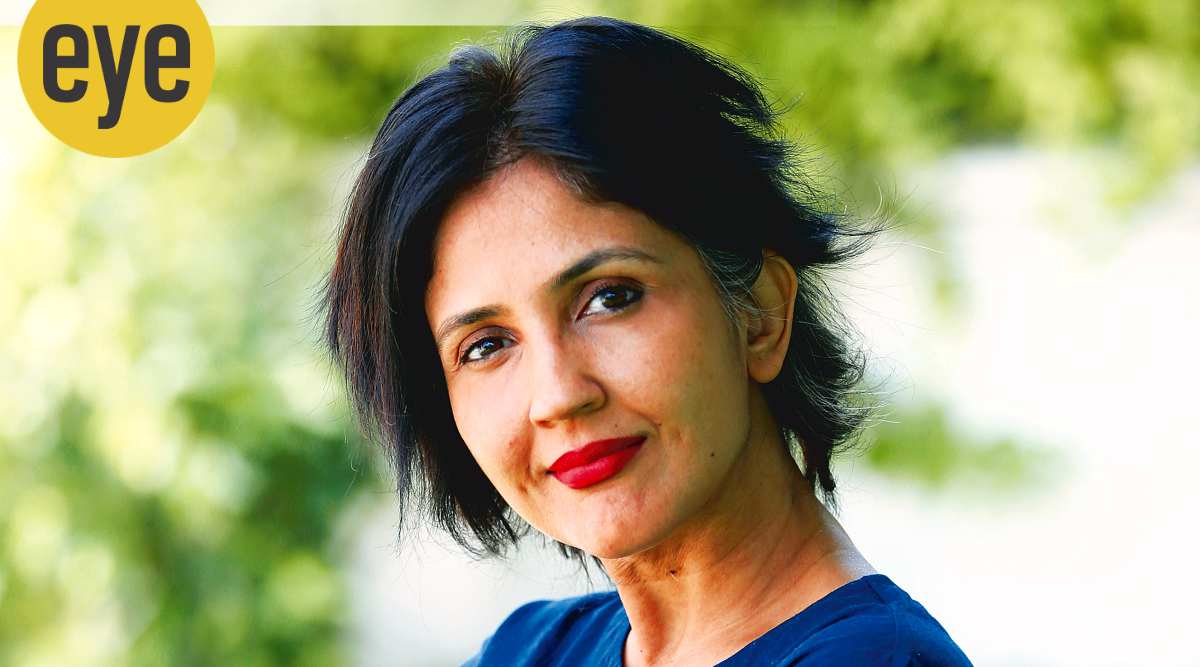Rom-com specialist Anuja Chauhan on writing her maiden murder mystery and examining her relationship with faith.
FROM BEING the ‘rom-com specialist’ to writing a murder mystery, how did you find your way to Club You To Death (HarperCollins, Rs 399)?
Well, I was starting to feel just a little bit trapped in the classic romance format. I wanted to write about older, riper or rawer equations between people. But at the same time, I love the propulsive thrust a romance gives to a novel. You can tackle family, serious themes like superstition (The Zoya Factor, 2008), toxic patriotism (Baaz, 2017), corruption in politics (Battle for Bittora, 2010) and you still don’t lose a restless reader because they’re hanging in there to see the couple get together. A murder provides a similar propulsive thrust — the reader hangs in there to find out who’s done it — so, it seemed like a good structure to attempt. Also, I was really excited to see if I could successfully pull a killer out of a hat!
Your description of the Delhi Turf Club, the setting of your novel, as an ‘ageing superstar, thoda irrelevant in these times, surviving mostly on reputation’ is apt for so many of clubs. What made you settle on a club as the novel’s setting?
I started looking for a fresh setting which would provide me with a nice cross-section of suspects, the eternal dance between ancient snobberies and brash new money, and all sorts of social, political and ideological fault lines. I rejected several settings as too pat or done-to-death, and, then, one day, my husband had to go cast his vote in the Bangalore Club election and I tagged along to visit the beauty parlour there, and halfway through a (very good and reasonably-priced) facial, I thought, wait, why not a club?
It would have to be a Delhi club though, to give me the mix of top retired soldiers, and ex-bureaucrats, and flush-with-funds businessmen I’d decided I wanted. So, the next time I visited Delhi, I met up with (former RAW chief and special director, intelligence bureau) AS Dulat, who has done so many exciting things in his life, including being president of the Delhi Gymkhana Club (DGC). We had a nice, gossipy chat in the Café Coffee Day at the DGC, about the challenges that a club president faces, club elections and all the various cliques, frictions and factions, and I settled down to write in earnest.
What is your favourite memory of your time in clubs across India?
My childhood clubs were all fauji ones, in Assam, Meerut, Chandimandir and Delhi. My sisters and I loved going to the club because our mother would let us wear shorts there; there would be swimming, skating and a well-stocked library; hot dogs, movie nights and cute boys. There’s a story of how my father reeled when he saw his monthly club bill in Dinjan, Assam, because the three-year-old me was thrilled about being able to order as much ‘free’ Coca-Cola and French fries as one liked, just by telling the bearer your papa’s name! A murder mystery is also about the ruptures in society.
You dwell lightly upon many contemporary issues in the book — surgical strikes and One Rank One Pension, privilege, corruption and the ease of labelling people as ‘anti-national’ now. Your previous novel, Baaz, too, raised some of these issues. Are you slowly moving towards canvases with dil-dosti-pyaar, but also with larger conversations about the churn in society?
Well, blind faith in superstition, corruption in politics, state-sponsored propaganda, family property disputes, muscular patriotism, all these are things I’ve written about in my ‘romance’ novels. This stuff is key to my writing because nobody ever falls in love in a vacuum — you fall in love at a certain time, in a certain place, with certain issues being hotly debated around you. In fact, in today’s super-woke times, their take on these issues is what helps young people identify like-minded partners for themselves in the first place.
You write in the book’s Acknowledgement about overcoming a crisis in faith and learning to enjoy divinity in the everyday. Did this realisation free you up in ways you hadn’t realised?
All organised religion is divisive at the core. It teaches you that only your God is the true God and that the rest of the world has been deluded by charlatans or the devil. It preaches ‘love thy neighbour’, but it teaches mistrust/pity/despise thy neighbour. It sets up a moral authority that is not accountable to human law, and that cannot be questioned by believers. Naturally, all kinds of corruption would flourish in a system that operates that way! It absolves itself of any responsibility for the mess your life is in, by claiming that you are not seeing results in your life — like healing, success or happiness — simply because you aren’t praying hard enough, because your faith is weak. Realising this has made me much less judgemental and frightened, and much more proactive. I no longer ‘pray and wait’ for God to fix things, but do what needs to be done to fix any situation…
Have you ever been tempted to direct your own books into films?
I have! I think I could do a decent job of it, actually. But I’m very, very control-freaky (sic), so I would probably drive the cast, crew and studio nuts.
What comes next?
I’ve just started writing a new commissioned screenplay; Sardar Ka Grandson, a film I wrote with director Kaashvie Nair for Emmay Entertainment, starring Neena Gupta, Arjun Kapoor, John Abraham and Rakul Preet Singh is set to release on Netflix this summer, and Disney+ Hotstar’s adaptation of Those Pricey Thakur Girls, directed by Habib Faisal, is being shot as we speak. And, of course, if Club You To Death does well, then ACP Bhavani Singh will have another outing!
Source: Read Full Article




